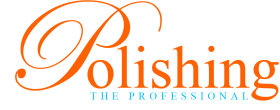
According to the National Council of Educational Research and Training (NCERT), a soft skill is a tool you can use in relationships in and out of the workplace- also known as Interpersonal Skills. Just how is a soft skill useful at work? It makes collaboration amongst colleagues possible. Examples of soft skills are effective communication, leadership, and teamwork skills, the ability to problem-solve, take initiative and stay motivated, and possess strong work ethics and honesty.
I am a strong believer that communication is the key to success. It is important to have good communication in the workplace so that all employees are on the same page. No matter what your title or position may be, all employees share a mutual goal. That goal is to succeed within the company. By achieving this goal, the company will automatically succeed itself. How can teamwork and leadership skills be used simultaneously? It’s simple. Although leadership means for one person to lead, a great leader will not be successful if they don’t take other employees’ ideas or collaborations into consideration. Leadership requires working well with others; if leaders lack the ability to work as a team, then goals may be harder to accomplish. For instance, if a leader of a group has an idea that works well for him/her and some of the workers but others express concerns, if he/she ignores this, it could have a negative impact on results.
To be successful in the workplace, a person must possess some level of problem-solving skills. Even at a low-grade level, a person should at least have the ability to initiate the first steps of problem-solving. This soft skill can be developed and improved with time. You can improve your problem-solving skills by familiarizing yourself with common issues in your industry and learning from your more experienced coworkers. -The Balance Careers
There are 7 steps to problem-solving. They are to identify the problem; analyze the problem; describe the problem; look for root problems; develop alternative solutions; implement the solution and measure the results.
You may have heard the saying “Honesty is the best policy.” Honesty is considered to be a trait that benefits and strengthens integrity in the workplace. Integrity and honesty encourage transparency and trust amongst employees. The more transparency there is, the happier the employees will be. The happier the employees are, the more productive they will be. It’s a win-win situation.
Time management is another soft skill that is beneficial in the workplace. Jobs have procedures in place that help get work done in a timely manager. A person must be able to pace themselves in a way that can get the job done accurately and on time. To “work smarter and not harder” is a saying that many people use, which means you get the job done right the first time and in less time.
In short, soft skills in the workplace allow a person to work successfully and productively with others by means of communication, managing time accurately, and finding solutions to problems. The use of soft skills in the workplace is important and beneficial to both the employee as well as the employer.
APR
2022
